When it comes to handling legal matters, having the right representation is crucial. This is where a letter of authorization comes into play, allowing someone to act on your behalf in legal situations. Crafting a clear and concise letter can ease the process and ensure that all necessary parties are informed. If you want to learn how to create an effective legal representative authorization letter, read on for a detailed guide!
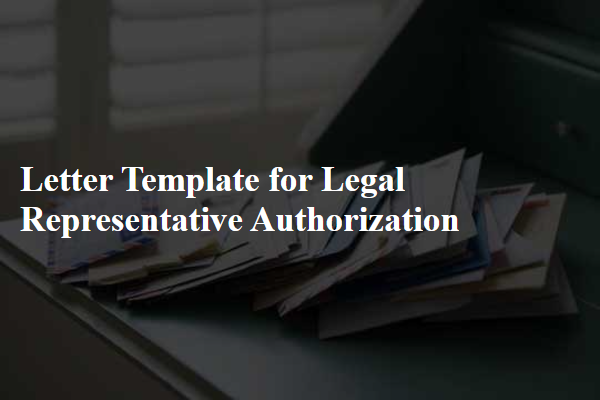
Legal Representative's Full Name and Contact Information
A legal representative is a person authorized to act on behalf of another individual in legal matters, typically involving issues such as contracts, litigation, or transactions. This representative, often a lawyer or an attorney, must possess a complete understanding of laws and regulations pertaining to the case at hand. Their contact information, including telephone numbers and email addresses, serves as a crucial link for correspondence between the parties involved. Effective communication is essential for ensuring timely responses to legal inquiries and facilitating important discussions regarding legal strategies and decisions.
Authorizing Party's Full Name and Identification Details
Authorization of a legal representative allows individuals to delegate authority for specific actions. The Authorizing Party, typically containing full name, date of birth, address, and identification number, enables legal representation in contexts such as real estate transactions, contractual agreements, or court appearances. This document often includes details about the Authorized Party, specifying full name, relationship to the Authorizing Party, and the scope of authority granted. Legal jurisdictions, such as laws applicable in New York or California, may dictate the format and necessary elements for validity, ensuring that the authorization is recognized in legal proceedings.
Scope and Duration of Authorization
A legal representation authorization document outlines the delegated powers granted to an individual or entity to act on behalf of another in legal matters. This authorization specifies the scope, which may encompass activities such as contract negotiations, court appearances, and settlement discussions, ensuring that the legal representative has clear guidelines on their authority. Duration of the authorization typically defines a time frame, which could be a specified number of days, months, or tied to particular events such as a court case's conclusion. This formal agreement serves to protect both the principal and the agent, providing clarity and preventing misunderstandings during legal proceedings.
Specific Powers and Limitations Granted
In a legal representative authorization, specific powers and limitations should be clearly outlined to ensure clarity and compliance. The authorized representative, such as an attorney or agent, may be granted the power to make decisions on behalf of the grantor in matters relating to financial transactions, real estate dealings, or legal proceedings within a designated jurisdiction. Specific limitations could include restrictions on the sale of significant assets exceeding a defined monetary threshold, such as $50,000, without explicit consent from the grantor. Additionally, the authority could be limited to a specific timeframe, for example, effective for a duration of one year from the date of signing. Including a clause for revocation may also be necessary, allowing the grantor to terminate the authorization under specified conditions. This ensures both the grantor's interests and the legal integrity of the actions taken by the authorized representative.
Signatures and Notarization (if required)
Legal representative authorization documents require valid signatures from both the person granting authority and the representative. Notarization may be a requisite step to authenticate the identities involved, especially in jurisdictions where legal implications arise from non-compliance. The frequency of notarization, influenced by local laws, can vary between states, with some areas necessitating it for validity. Signatures must be executed in the presence of a notary public, who will then affix their official seal and signature to validate the document. The notary's role includes verifying the identities of the signatories, ensuring they are signing voluntarily, without coercion. This process solidifies the legitimacy of the authorization, safeguarding against disputes or challenges to the authority granted.
Letter Template For Legal Representative Authorization Samples
Letter template of legal representative authorization for business transactions
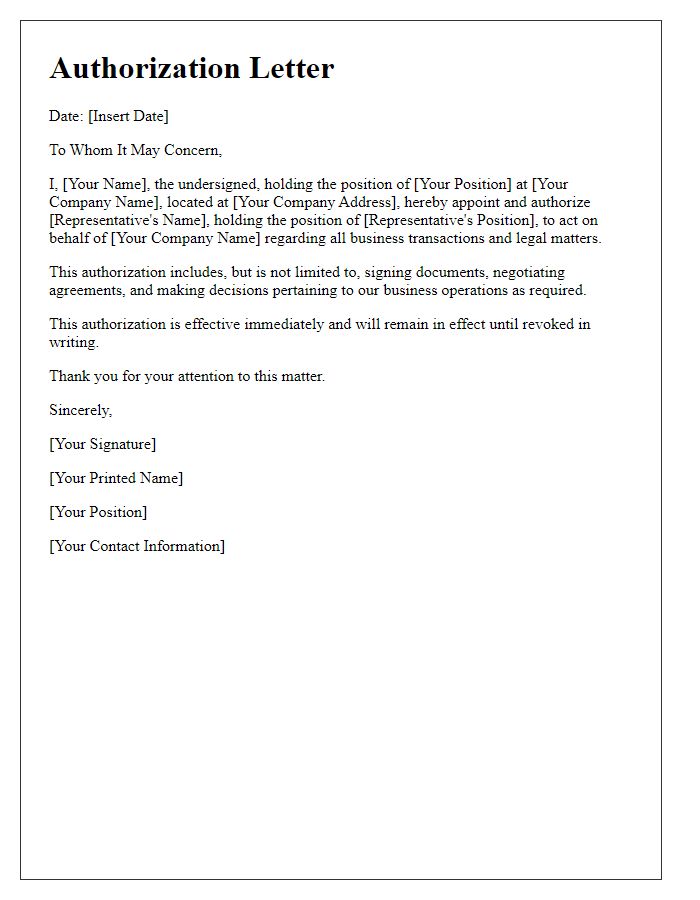
Letter template of legal representative authorization for medical decisions
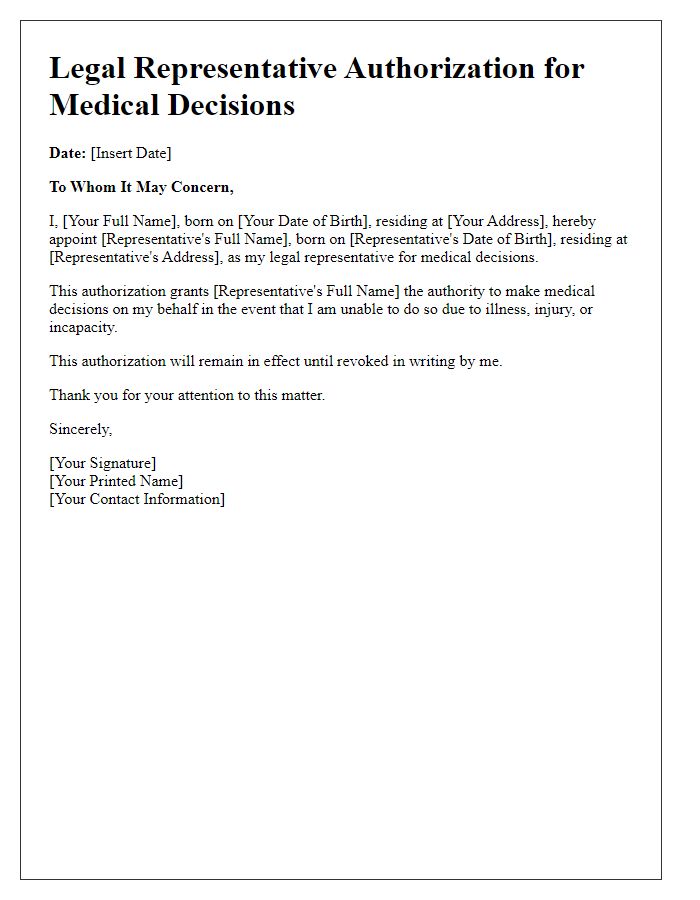
Letter template of legal representative authorization for property management
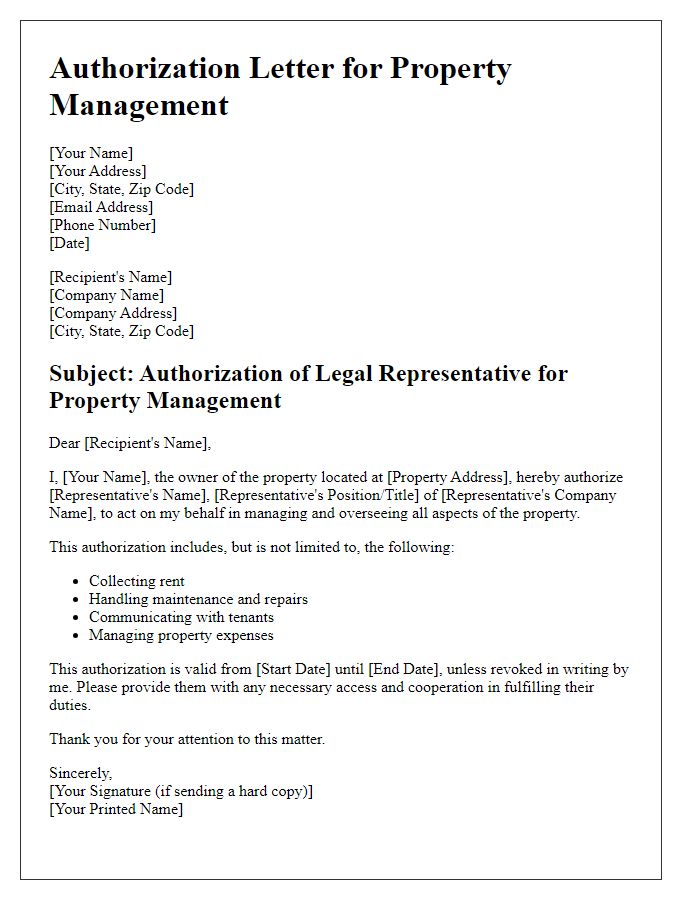
Letter template of legal representative authorization for educational purposes
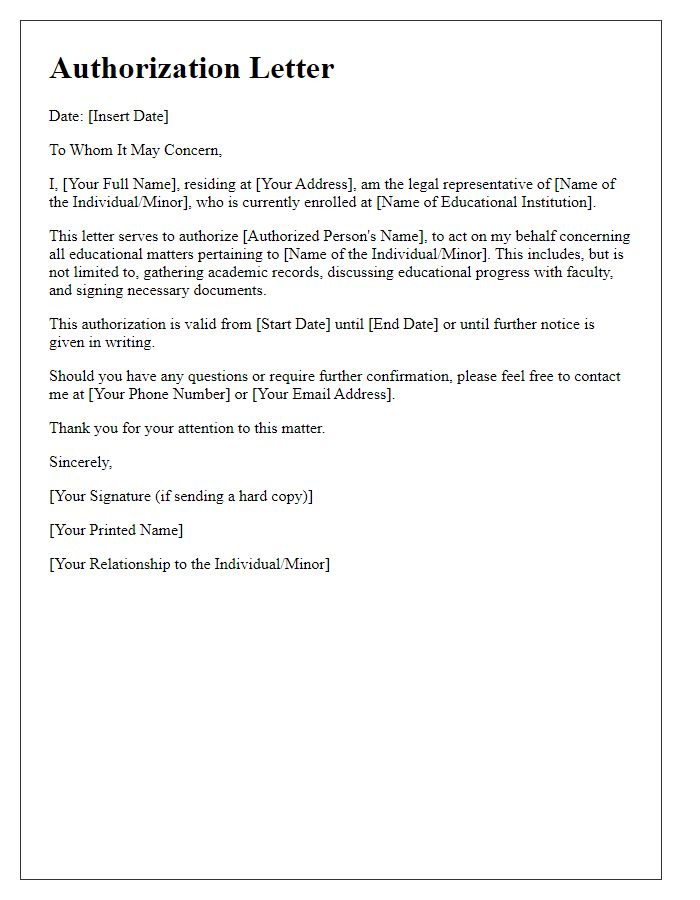
Letter template of legal representative authorization for financial affairs
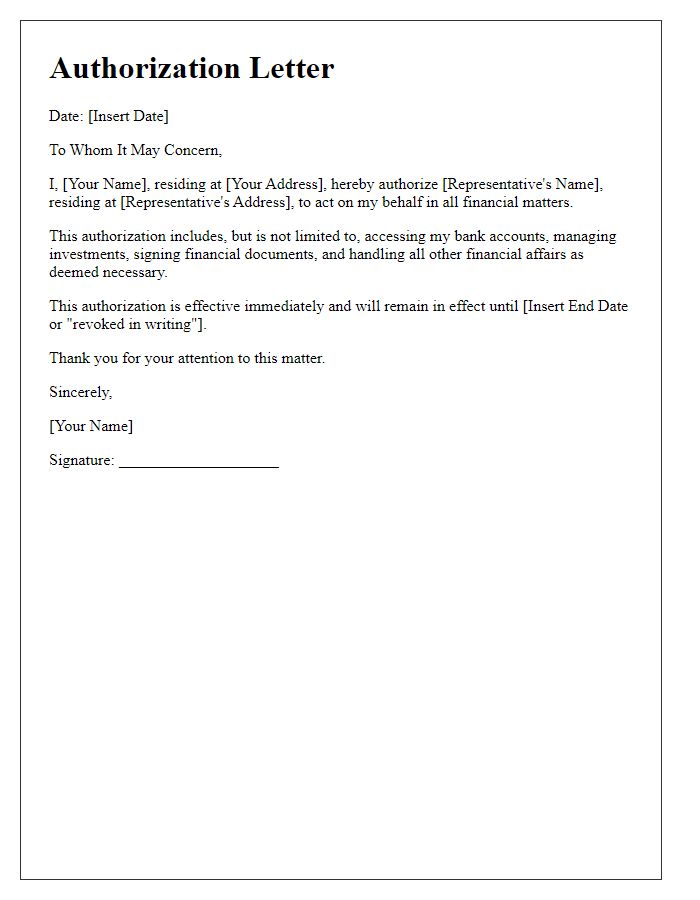
Letter template of legal representative authorization for court appearances
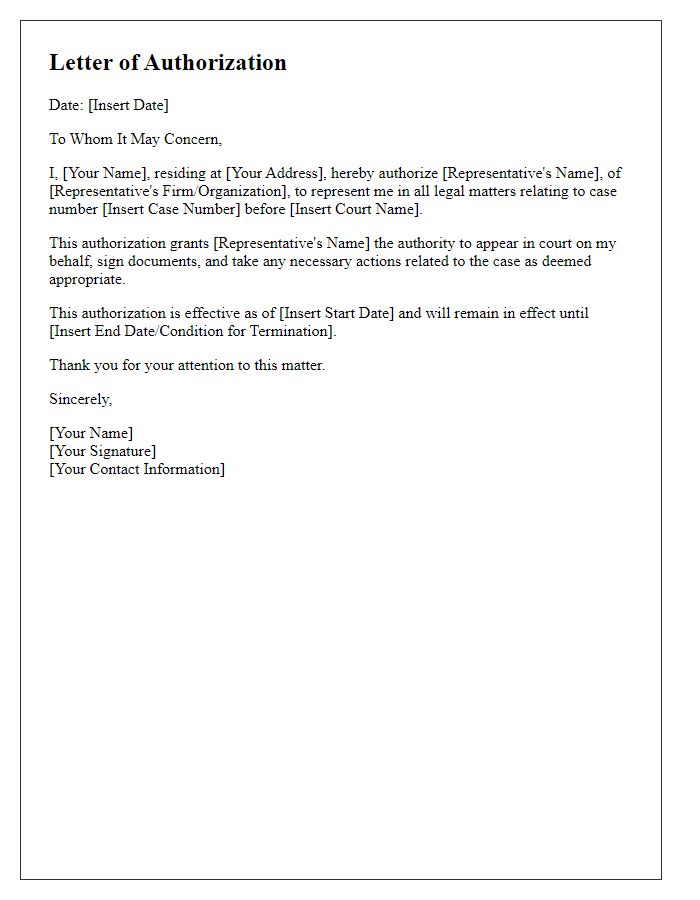
Letter template of legal representative authorization for contract signing
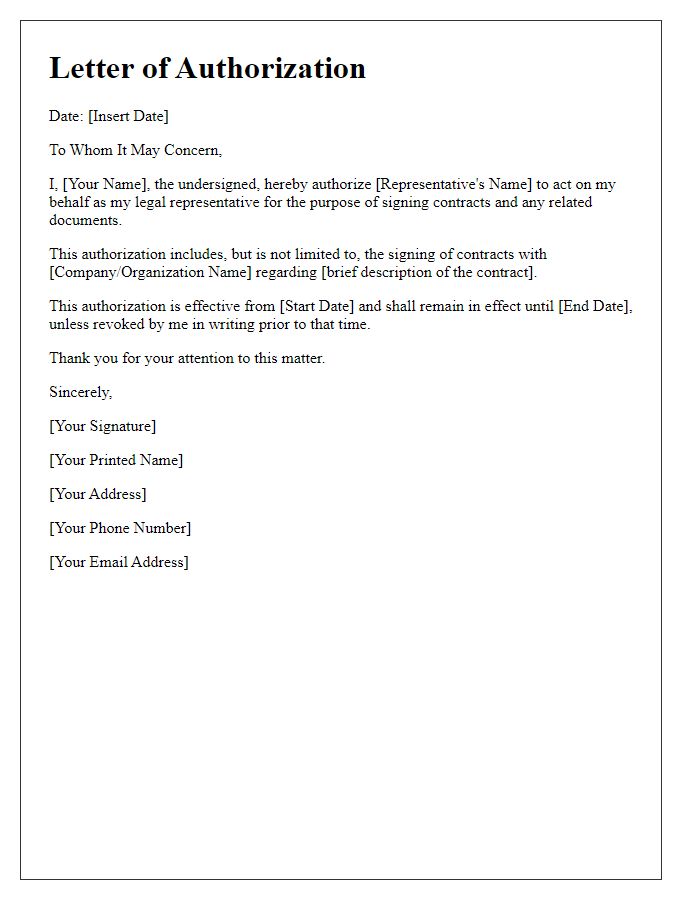
Letter template of legal representative authorization for governmental interactions
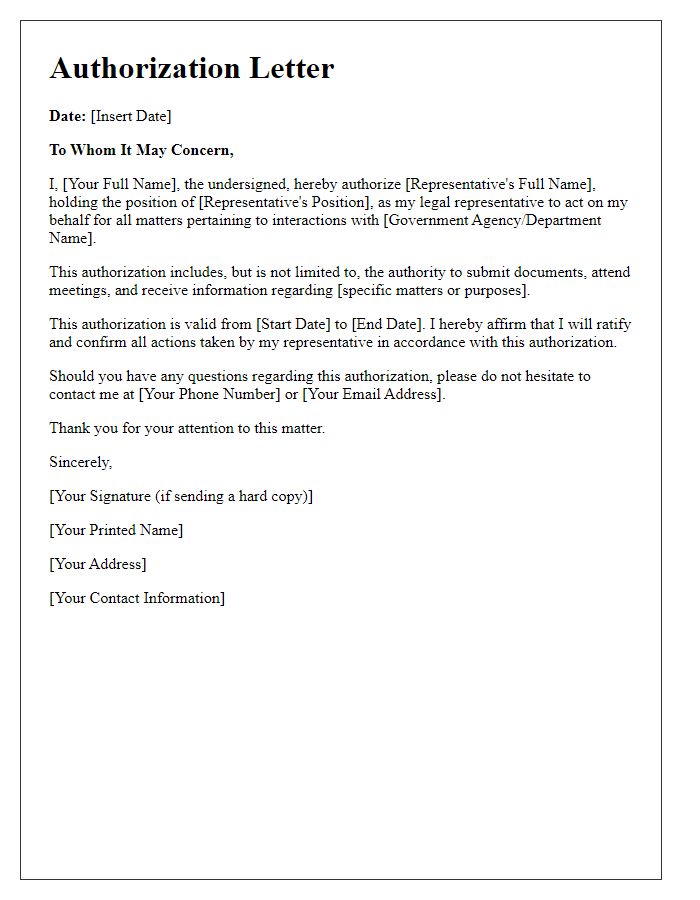
Letter template of legal representative authorization for personal matters
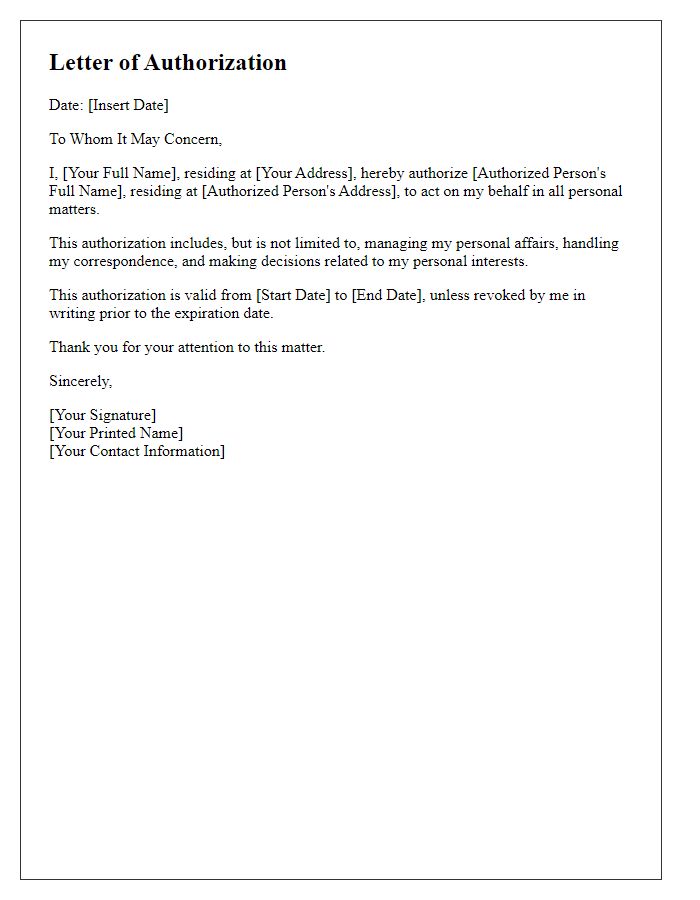

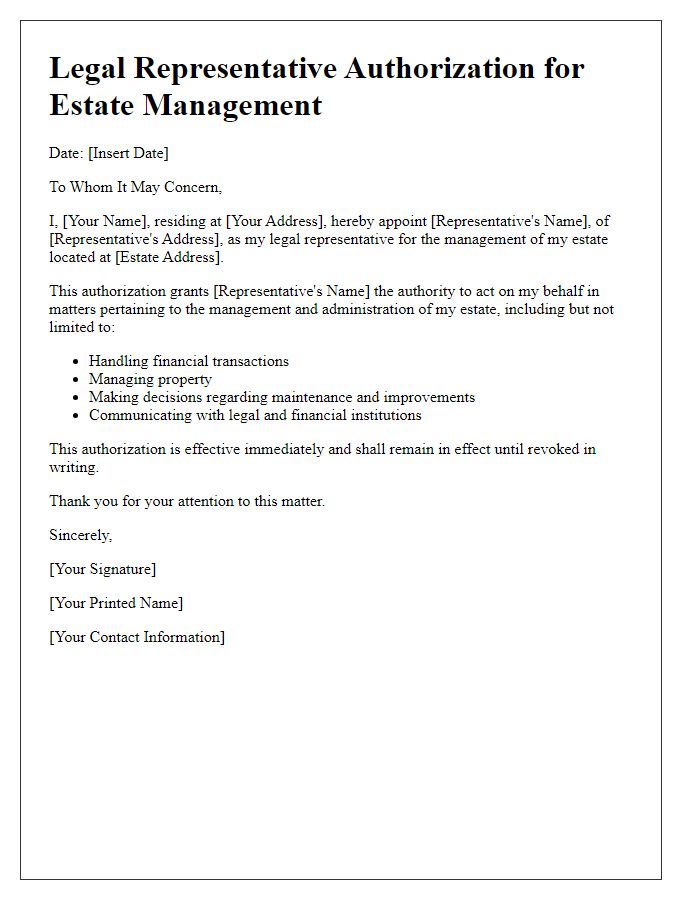


Comments